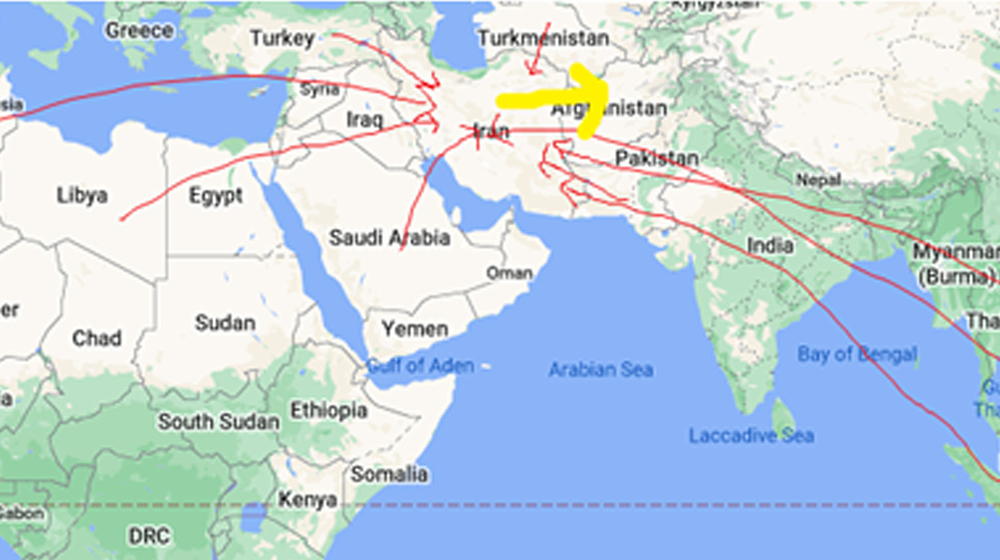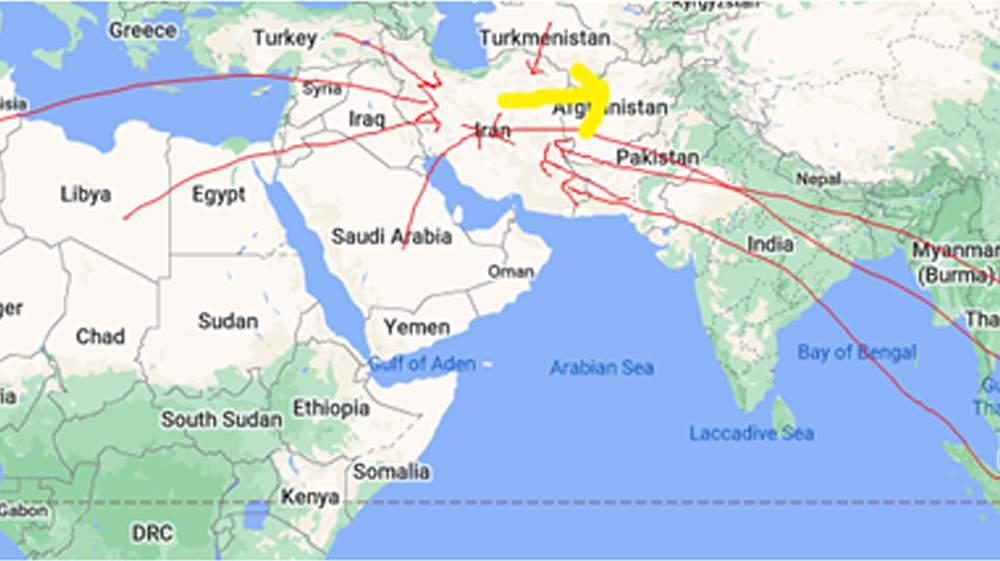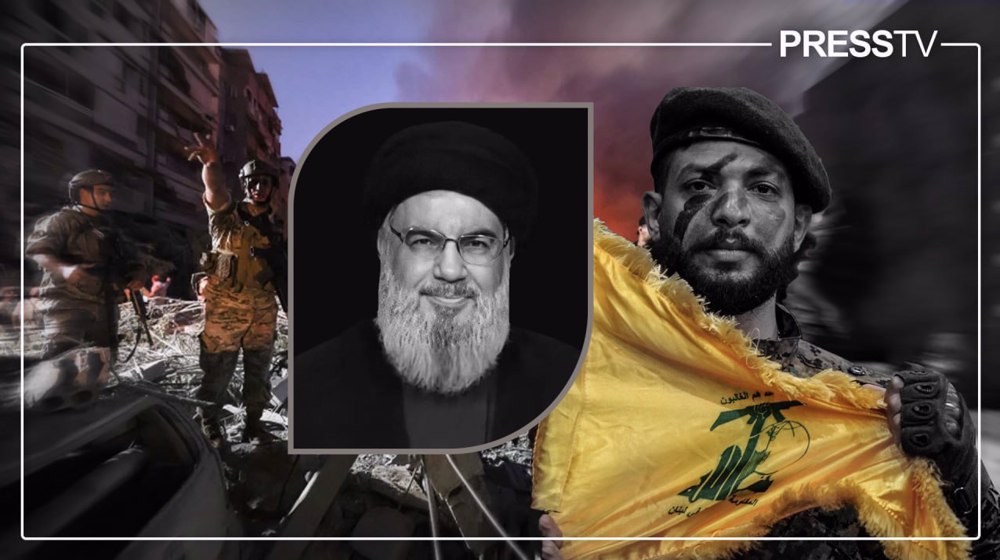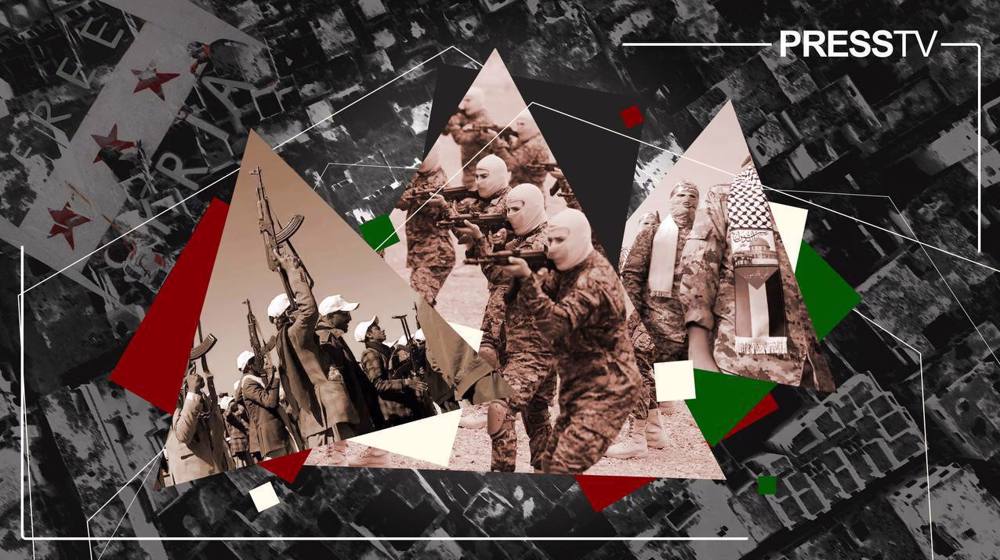Iran’s Islamic Unity Week: A place free from fascist, reactionary, anti-Muslim influences (2/2)
By Ramin Mazaheri
The intellectual unity of the Muslim World has long been established. They are similar to the Buddhists in this - they similarly have had very few epochs of “fitna” (civil war) - and dissimilar from their Christian Abrahamic brothers, who seemingly have embraced the idea that Christian unity is neither achievable nor even desirable but fundamentally antagonistic and overly-intrusive.
Indeed, it is not surprising that the Western media did not cover Iran’s 35th annual International Islamic Unity Conference, which just concluded, as it does not appear to see divisions among Christianity as a subject worth covering either?
Part One discussed the geopolitical foundations of the Conference: The struggle for unity in the Muslim world regarding the global war against a sense of arrogant privilege which some persons call “reactionary”, which other persons call “fascism” and which other persons call “evil”. Certainly, “imperialism” can be used interchangeably with all three.
The anti-imperialist victory of the Taliban over the United States-led Western coalition may wind up not being anti-imperialist at all - this was the underlying concern of this year’s conference.
The Taliban themselves were indeed this year’s target audience: it should be easily understandable that the primary aim was to show the Taliban that they are being monitored, and that there are demands by 52 Muslim countries that Shia and other groups be protected in the name of both Afghan unity and Muslim unity.
The expulsion of the Western coalition may prove to be a failure in the anti-imperialism fight if Daesh and other terrorists - who foment Muslim disunity via attacks on Shia - are not totally rejected and subdued by the new Taliban leadership. Without an inclusive government and zero tolerance for “sectarianism/identity politics”, then certainly Daesh will continue to terrorize and thus provide grounds for yet another western invasion. That would mean more decades of disunity in Afghanistan, in a victory for imperialism.
However, a Taliban which is inclusive and which expels Islamic fundamentalists would be a victory for both anti-imperialism as well as Muslim unity. It should be easy to see why for Muslims the two are the same in 2021. It should be easy to see why the colonialist project of Israel and the individualist-worshipping Western 1% Muslim unity is as threatening to their profit lines as anti-imperialism is; as any broad unity of the masses is.
The Taliban say they have changed from decades of fighting - the conference is a reminder that 52 Muslim nations are studying them closely for proof.
Daesh and other groups - which are known to be funded by Western imperialist nations even though they find democratic approval in no Muslim region - keep getting Western guns and money precisely because they allow the West to station Western troops in Muslim countries. It is a fundamental tenet of the International Islamic Unity Conference that Muslim nations must provide for their own security, as Iran does. The West repeatedly insists that only they are capable of providing security in the Muslim world, but the double-dealing and murderous hypocrisy of Western history in the modern Muslim world is well-known to all.
Indeed, the Muslim world is so thwarted and denied chances of self-empowerment that they are now relying on the Taliban - originally a terrorist group supported by the United States to topple a democratic government - to break the cycle of Western-backed terrorism within Muslim countries.
It seems like a very weak leg upon which to rest the Conference’s politically-modern version of Muslim unity, no?
But there is no worldwide revolution coming to save the Muslim world: The nation of Afghanistan has proven exceptional in its ability to overcome foreign invasion, and now they must prove that their exceptional ability was based on the modern political ideas of grassroots demands for sovereignty, social equity and religious harmony.
In a real way, Iran’s Conference is an open invitation, and a plea, and a humble request for communication in order to show the Muslim world that there is another version of what is acceptable in Islam other than what is offered by the house of Saud and the obscenely-moneyed (which is also to say “obscenely privileged”) Persian Gulf countries. The differences are not cultural values - because Islam is the essence of all these cultures - but the most fundamentally modern political values, i.e. the rejection of feudalism, monarchy, unequal privilege, Muslim disunity and the violence always required to uphold any of these outdated concepts.
The conference shows that the petrodollar’s true printers and the Arab League do not have a monopoly on the political direction of the Muslim world, and - in my opinion - their actions and comprador complicity in recent decades show that they do not deserve one.
Iranians believe that due to their Islamic and modern revolution they are not some sort of shining example for the Muslim world but simply a guaranteed safe space - a place that can host open dialogue and which excludes undoubtedly reactionary/fascistic/evil intentions.
Such dialogues must be held in the name of Muslim unity, which should be about as controversial as motherhood but which are controversial because Muslim unity would upend two centuries of Western dominance, colonization and forced regression/stagnation. In 2021 the Muslim world looks to Afghanistan as a place of newfound military sovereignty - grassroots, republican and Muslim unity must immediately follow.
(Ramin Mazaheri is the chief correspondent in Paris for Press TV and has lived in France since 2009. He has been a daily newspaper reporter in the US, and has reported from Iran, Cuba, Egypt, Tunisia, South Korea and elsewhere. He is the author of ‘Socialism’s Ignored Success: Iranian Islamic Socialism’as well as ‘I’ll Ruin Everything You Are: Ending Western Propaganda on Red China’, which is also available in simplified and traditional Chinese.)
(The views expressed in this article do not necessarily reflect those of Press TV.)
Israel admits assassinating Hamas leader, vows to inflict same fate on Yemeni fighters, people
VIDEO | Yemeni forces repel US-British attack, down F-18 Jet
Iran’s capabilities vast; enemy’s ‘maximum pressure’ policies all failed miserably: Senior official
Iran’s economy grew 2.7% y/y in Sep quarter: CBI
VIDEO | Freelancers in Gaza strive to stay online amid genocide
Mikati demands Israel's withdrawal from south Lebanon
Yemeni army strikes Israeli military sites with drones
‘Clock ticking’: UNRWA slams unjustifiable killing of children in Gaza











 This makes it easy to access the Press TV website
This makes it easy to access the Press TV website